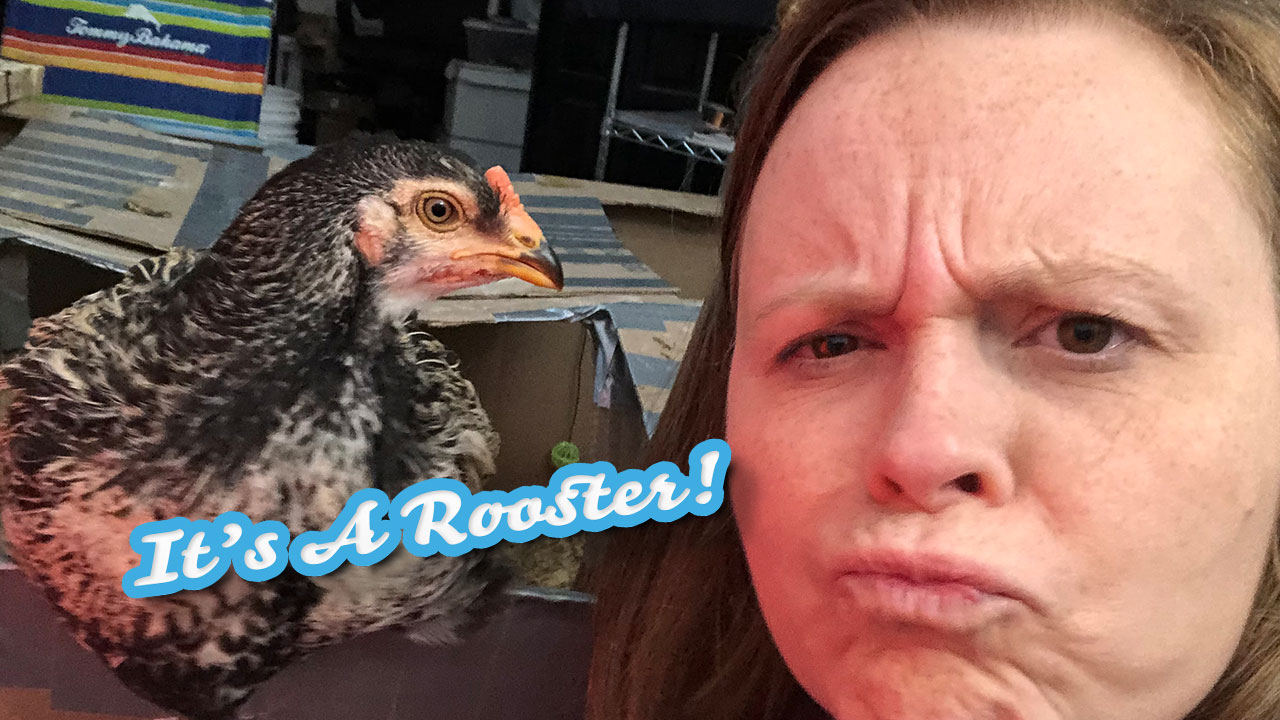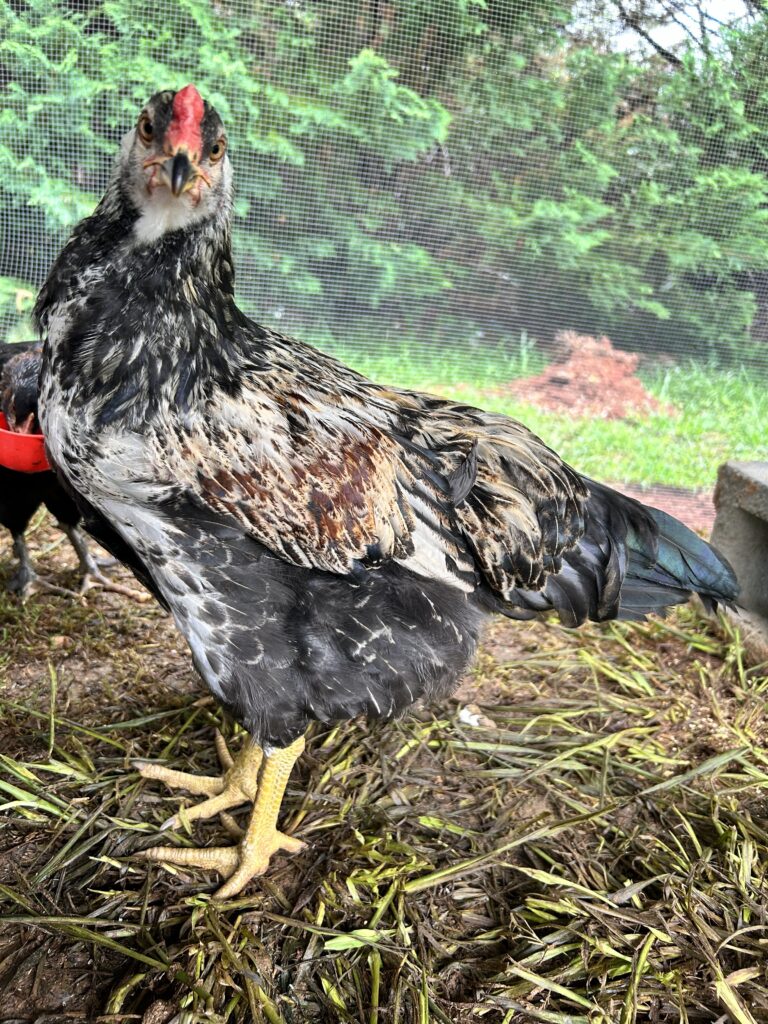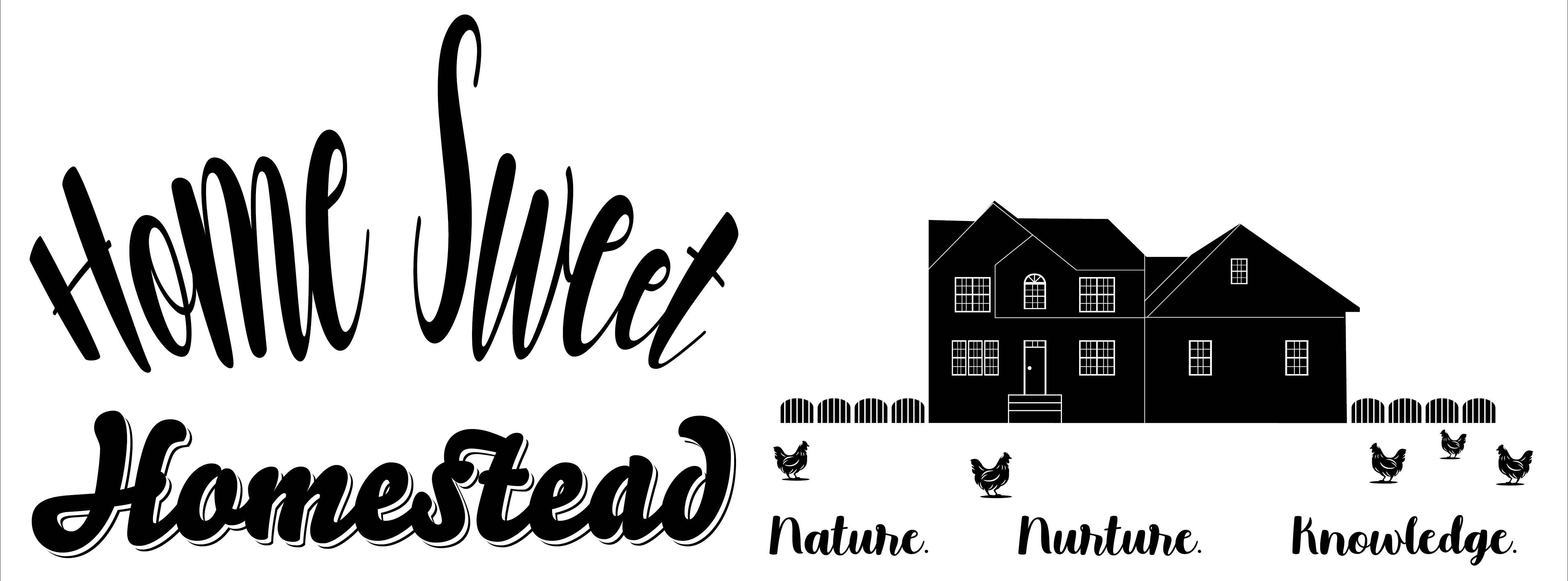You went for it and brought home baby chicks! You were told they were females but only given a 90% guarantee they weren’t a rooster. Seems like good odds, right?

Well, that’s what we thought. We bought 13 chicks from a local feed store. All was well until one day, we noticed one was quite bigger than the others, and the comb was a lot redder. My husband kept telling me she, Agatha, was a rooster. I, being in denial, said maybe she had a cross of a bigger bird in her. She is an Easter Egger and they can be a bit hodge-podge on genes.
Then one day as they were still in our house, Agatha belled out a nice yell of some sort. It wasn’t your typical “cock-a-doodle-doo” but she was young yet. It kept happening every day, randomly throughout the day. My denial ran thick on this one. I had seen posts where hens would take on a rooster role and try to crow, so I convinced myself that had to be what was happening here. Once she was integrated outside with the others, her crowing became more distinct. I even sent a picture of Agatha to my local resource for all things chicken and duck, Megan @ The Littles Oasis Hatchery, and she gave me the news. “That’s an Easter Egger rooster.” Boo…
With that news, I was unsure of what to do. At that time, I was not ready to give her… I mean him, up. We renamed him Angus and just let him be to see what would happen. I have done some research while they were tiny about roosters to see what their role is in case we did end up with one. There are a lot of pros that I feel outweigh the cons.
Here are the benefits of having a rooster in your flock:
- Protection: Roosters are natural protectors and will watch over their hens, sounding alarms and actively defending the flock against potential threats such as predators. Their presence can enhance the overall safety and security of the flock.
- Flock Social Structure: Roosters establish a hierarchy within the flock, providing order and stability. They help maintain harmony and reduce aggressive behaviors among hens by mediating disputes and establishing boundaries.
- Fertility and Breeding: Roosters are essential for fertilizing eggs, allowing for natural breeding and hatching of chicks. If you plan to breed your chickens, a rooster is necessary for successful reproduction.
- Natural Incubation: Roosters can help with the natural incubation of eggs when hens decide to go broody. They will assist in caring for the brooding hens and protecting the eggs during the incubation period.
- Communication: Roosters use various vocalizations to communicate with the flock. They will call the hens to food, warn of danger, and announce the presence of tasty treats or potential threats.
- Soil Cultivation: Roosters can be beneficial in free-range settings as they scratch the ground while foraging. This helps aerate the soil, potentially exposing insects and grubs for the flock to eat.
- Attracting Predators Away from Hens: Roosters, being more conspicuous due to their larger size and striking plumage, can inadvertently attract predators away from the hens, serving as a distraction.

It’s important to note that while roosters offer these benefits, they are not suitable for every flock or setting. Some considerations before adding a rooster include:
- Local Regulations: Check local ordinances or regulations to ensure roosters are allowed in your area, as some urban or suburban zones may have restrictions on keeping roosters due to noise concerns.
- Neighbors: How close are your neighbors and would they be cool with a rooster crowing at 5 a.m.?
- Possible Aggression: Some roosters, though protective of their hens, can become aggressive towards you and your family. This will happen closer to maturity, about 5-6 months old, if not sooner.
- Flock Compatibility: The temperament of the rooster matters, as some individuals can be overly aggressive or dominant. A well-socialized and docile rooster is preferable for a family-friendly flock.
- Flock Size: If you have a small flock of hens, a single rooster should be enough. For larger flocks, it’s generally recommended to have one rooster for every 8 to 10 hens.
- Space and Living Conditions: Ensure the coop and run provide adequate space for the rooster to move comfortably and interact with the hens without overcrowding.
Our rooster’s crowing doesn’t bother our family. The positive we’ve seen so far is his ability to keep watch over all of the hens and he puts them to bed each night. I am able to rest a bit easier during the day while they free range, knowing he’s out there.
My biggest concern is whether will the rooster turn aggressive.
He’s now 4 months old and hasn’t hit that stage of hormones possibly. We do keep track of Angus when outside, though he seems to come to hang out with us or stay near us when we venture out. We talk to him, attempt to pet him, give him treats, and occasionally handle him, in hopes that he will just remain a cool rooster.
So if any of those cute little fluffy butts turn out to be a rooster, follow these tips to figure out if a rooster is right for you.



Leave a Reply